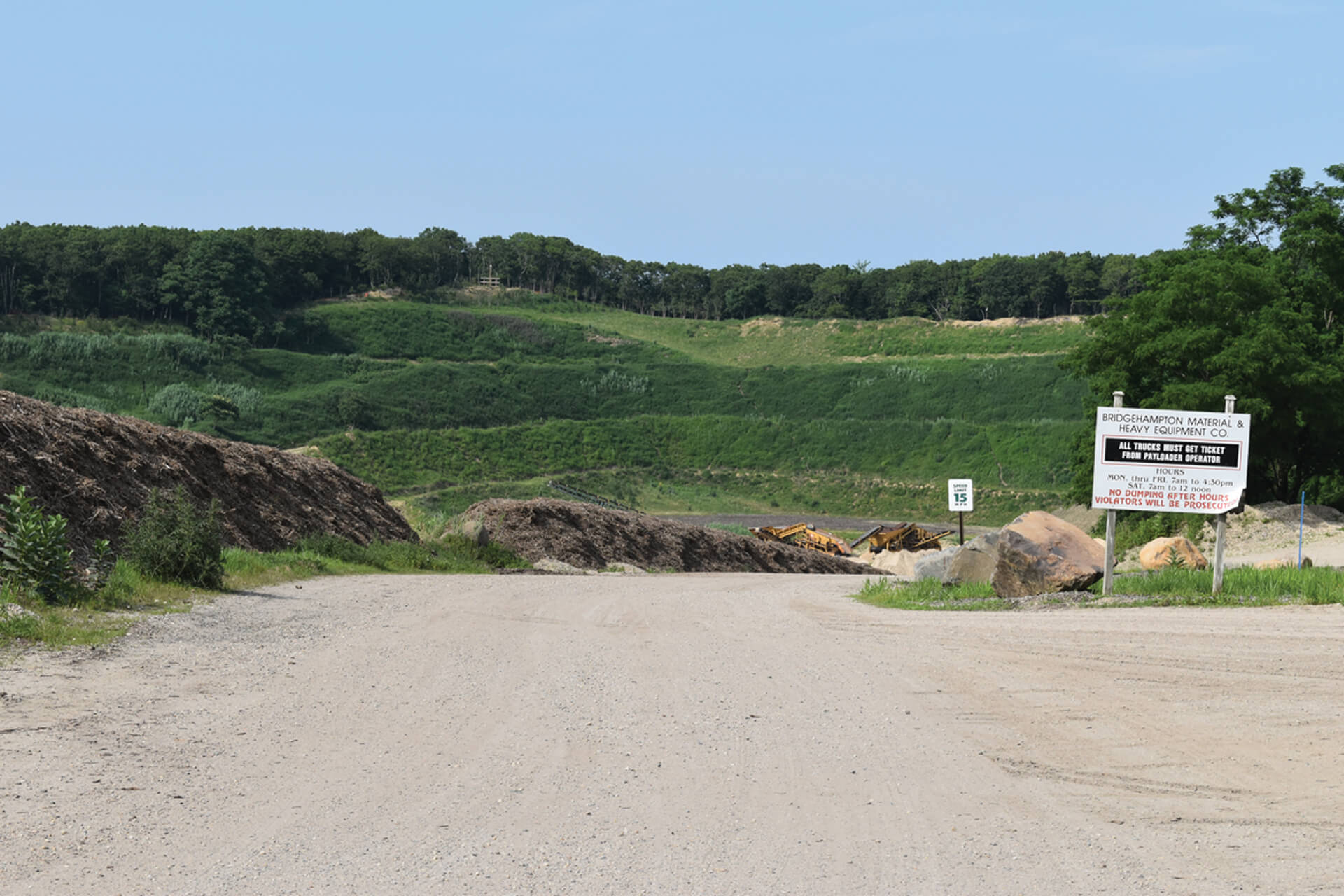High Metal Levels In Sand Mine Wells

The Suffolk County Department of Health Services announced that its testing of groundwater at Sand Land, a sand mine and mulching facility off Millstone Road in Noyac, has shown sharply elevated levels of manganese and elevated levels of other metals that have caused “significant adverse impacts to groundwater” despite the considerable depth to groundwater at the site.
The study, released by Suffolk County Health Commissioner Dr. James Tomarken, concluded that the results of the study were similar to testing results obtained from other facilities that compost and mulch vegetative waste elsewhere in the county.
The health department recommended that the remaining private wells in a survey area to the north and northwest of the 50-acre Sand Land be tested to determine whether or not the contamination, which includes other chemicals, has spread off-site.
Furthermore, the county said that the New York State Department of Environmental Conservation and Southampton Town “should ensure that the activities conducted at the Sand Land facility are in compliance with all applicable codes, ordinances, permit requirements, etc., and that the activities at the site do not further impact groundwater quality.”
Finally, the report recommends that if the town and state are to allow the continued use of the site to process vegetative organic waste that they should “ensure that mechanisms are in place to prevent operating practices from further detrimentally impacting groundwater and surface water quality.” It also urges the DEC to “continue to inspect the facility to ensure that all materials being brought to the site are free of contamination.”
The results of the county’s studies were widely expected. Last winter, the Noyac Civic Council, the Group for the East End, and the Citizens Campaign for the Environment obtained a draft version of the report and released the initial findings.
“No surprises,” said Elena Loreto, the president of the civic council, of the health department’s report. “We knew it in March.” Loreto and her organization have been vocal critics of the Sand Land site and the slow pace of efforts to shut it down.
“How much longer should we wait?” she said. “Someone has to do something soon. The contaminants are in the aquifer now. How long until they spread all over the place?”
“These results speak directly to the critical need for better protection of our fragile drinking water supply and to the immediate need for the DEC to shut down the organic waste processing operations at the site and to deny the facilities upcoming renewal and expansion requests,” said Bob DeLuca, the president of the Group for the East End.
“Unfortunately, the DEC has badly managed the oversight of this facility for years and long rejected numerous, informed complaints by neighbors, concerned citizens and respected environmental organizations, which all suspected that operations at this facility were threatening our drinking water.”
Southampton Town Supervisor Jay Schneiderman, who led the effort when he was a county legislator to have the Sand Land site tested, said on Monday that because litigation is continuing between the town and Sand Land’s owners that he could not comment at length about what the town’s next step would be.
“The report is confirming that there have been adverse impacts to the groundwater,” he said. “The town will continue to enforce our code in this matter and to protect our drinking water.”
The current county legislator, Bridget Fleming, also weighed in. “The report demonstrates definitively that the ongoing activities at this site are polluting our drinking water now and for future generations,” she said in a release. “The conclusions of this report must be met with swift action.”
Sand Land is operated by Wainscott Sand and Gravel, which originally used the site to mine sand, a major component in the manufacture of concrete. Over the years, it began processing brush, trees, and other vegetative waste, as well as construction debris. As the area surrounding the site became developed, the facility came into the crosshairs of neighbors, who raised concerns about the long-term environmental consequences of the activities at the property.
The Southampton Town Zoning Board of Appeals imposed restrictions on the site, resulting in a series of lawsuits that have yet to be resolved. Separately, Sand Land has sought to expand its state permit to conduct sand mining at the site, which has also resulted in opposition.
John Tintle, the company’s owner, could not be reached for comment.
sjkotz@indyeastend.com



